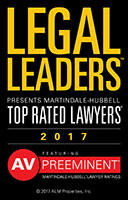Owning real estate does not mean you are able to do whatever you choose with the property. Most parcels of land are governed by zoning ordinances that dictate what you can and cannot do on the property. However, there are gray areas and it might be possible to fight an ordinance or land use regulation if you understand the guidelines and work with an attorney experienced in zoning issues. What should you know?
Existing Use Likely Does Not Need to Change with New Zoning Laws
If a building is currently used as something (let’s say a restaurant) and new zoning laws are enacted barring that sort of business, the current owner will likely not need to close down his business or relocate. However, if the business does close, the likelihood of anyone else purchasing the building and using it as a restaurant is improbable. The new owner is required to conform to whatever zoning laws are in place at the time of purchase, even if he or she purchases a building with all the trappings of a restaurant. The exception given to the existing owner is known as non-conforming use.
Certain Uses are Allowed if Certain Pre-arranged Conditions are Followed
Use might also be governed by certain conditions. This is known as conditional use. For instance, a property owner might need to make special concessions to be permitted the right to use the building or land for a specific purpose. An example would be it hat restaurant being permitted to operate in a residential zone, as long as it keeps certain hours, provides off-street parking, and keeps garbage disposal out of sight. This is known as conditional use.
Another option that might allow a property owner to circumvent zoning laws is a variance. A variance can be granted by a zoning board and they are most commonly approved when abiding by a particular zoning issue causes the owner of the property hardship.
What about Spot Zoning?
Exceptions are occasionally granted for the various reasons listed above, but local governments must be careful not to spot zone. This occurs when an exception conflicts with the overall land use ordinance. Whether or not spot zoning has occurred varies from property to property, and the various terms of a zoning ordinance, but if it is determined to be an issue, property owners will likely be unable to use their land as they wish.
The best way to navigate the sometimes confusing issues associated with zoning is to speak to an experienced land use lawyer. Ask your attorney about who has the right to protest an application for a variance and what limits are placed on zoning changes in your area. Also ask about the rights you have for protecting your property.
If you are interested in learning more about zoning issues or you need the assistance of Colorado residential and commercial real estate attorneys, contact the experienced legal team at Miller and Steiert, P.C. for more information.











